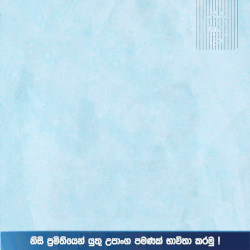Sri Lanka has just witnessed what can only be described as an alarming giveaway of our national sovereignty. As Indian Prime Minister Narendra Modi wraps up his 2025 state visit to Colombo, the Sri Lankan government is celebrating seven new agreements with India – but true nationalists see only seven new threats. These deals, signed with much fanfare, hand over critical sectors of our country to Indian influence under the guise of “cooperation.” From defense and energy to digital identity and pharmaceuticals, no past administration has ever surrendered so much, so quickly. For Sri Lankans who cherish independence, Modi’s visit does not signify friendship – it marks a betrayal of Sri Lanka’s hard-won sovereignty.
Seven Deals, One Surrendered Nation
Let’s be clear about what was signed away. The government inked seven Memoranda of Understanding (MoUs) with India during this visit:
- Power Grid Connection: Connecting our electricity grid with India’s, inviting dependency on a foreign power for energy security.
- Digital Government & Identity: Allowing India’s digital systems to be implanted into Sri Lanka’s governance – a clear breach of sovereignty and privacy.
- Trincomalee Energy Hub: Handing strategic energy assets and land over to foreign powers under the guise of development.
- Defense Cooperation Agreement: A serious threat to military neutrality, placing our forces under foreign influence.
- Eastern Province Development: Politically sensitive aid with strategic strings attached, threatening internal unity.
- Healthcare and Medicine: Setting the stage for pharmaceutical dependency.
- Drug Standards MoU: Risking regulatory capture by India’s pharmaceutical industry.
Each of these MoUs represents a national compromise. Taken together, they signal an unprecedented surrender of Sri Lanka’s independence to Indian interests.
National Security in Jeopardy
Among the gravest threats is the Defense Cooperation Pact. It is a bitter irony that a president who emerged from the JVP – a movement that once took up arms against Indian intervention in 1987 – has now formalized military cooperation with the very power they resisted.
India now gains influence over training, intelligence, and perhaps even strategic planning. True nationalists must ask: whose security are we defending – Sri Lanka’s or India’s?
Have we forgotten the bloodshed of 1987, when tens of thousands of nationalist youth gave their lives resisting Indian dominance under the Indo-Lanka Accord? Today’s pact is no different in spirit – only more subtle in form.
Energy Dependency: Lights Out for Sovereignty
The power grid interconnection is presented as a path to prosperity, but it’s a leash around Sri Lanka’s neck. One disagreement with India, and they could cut the supply. That is not cooperation – that is energy blackmail in waiting.
Even more disturbing is the Trincomalee agreement – a strategic betrayal. Trinco is not just a port; it is our geopolitical heart. And now, it is being handed to India and the UAE, behind closed doors, without public consent. The last time this happened, it sparked rebellion. It will again.
Digital Identity: A Foreign Fingerprint on Every Citizen
By bringing Indian technology into Sri Lanka’s Unique Digital Identity system, the government has placed every Sri Lankan citizen’s data at risk. This is a backdoor into the lives of 22 million people – a cyber colonization masquerading as innovation.
Would any nationalist tolerate a foreign power building and controlling the framework of national identity? The answer is no.
Healthcare and Drug Control: Dependency in White Coats
Healthcare is being framed as “cooperation,” but it’s nothing short of regulatory surrender. India now has a role in deciding which medicines we buy, from whom, and on what terms. If their companies dominate our drug market, what happens when we lose price control or supply diversity?
No nationalist would allow a nation’s health to be outsourced.
Eastern Province: The Trojan Horse
Why the Eastern Province? Because it has long been a strategic obsession for India. By earmarking aid for it alone, India is embedding itself where it can later exert political influence.
This is not generosity – it’s strategic groundwork. As nationalists, we must reject any deal that divides the island into foreign-managed regions.
History Repeats: 1987 All Over Again
We’ve been here before. In 1987, Indian pressure brought the Indo-Lanka Accord. It brought war, occupation, and death. More than 60,000 nationalists died to resist it. And now, we’re being led into the same trap – without protest, without a gun to our leaders’ heads.
At least then, our leaders were cornered. Today’s betrayal is voluntary – and therefore, even more dangerous.
This Must Not Stand
As a Sri Lankan nationalist, I sound this alarm for one reason: because I will not be silent as my country is carved up, sold off, and surrendered in piecemeal agreements dressed up as diplomacy.
This is not a rejection of India or any nation – it is a rejection of dependency. We must be self-reliant, sovereign, and strong. Our security must be our own. Our data must be our own. Our ports, our energy, our medicine – all must be ours, not theirs.
We must oppose these agreements. We must demand Parliament debate them. We must make our voices heard in every media, every platform, every street.
In 1956, a nationalist wave restored the voice of the people. In 2025, we must rise again.
Sri Lanka is Not for Sale
We can cooperate without capitulating. We can trade without being trapped. But this government has chosen surrender over strength. It is up to us – the nationalists, the defenders of this land – to draw the line.
This is the line. We must not cross it.
Jihan Hameed is a Sri Lankan nationalist, expressing the concerns of many who put country above all else.









 Lanka Rahas Web
Lanka Rahas Web
No comments
Post a Comment